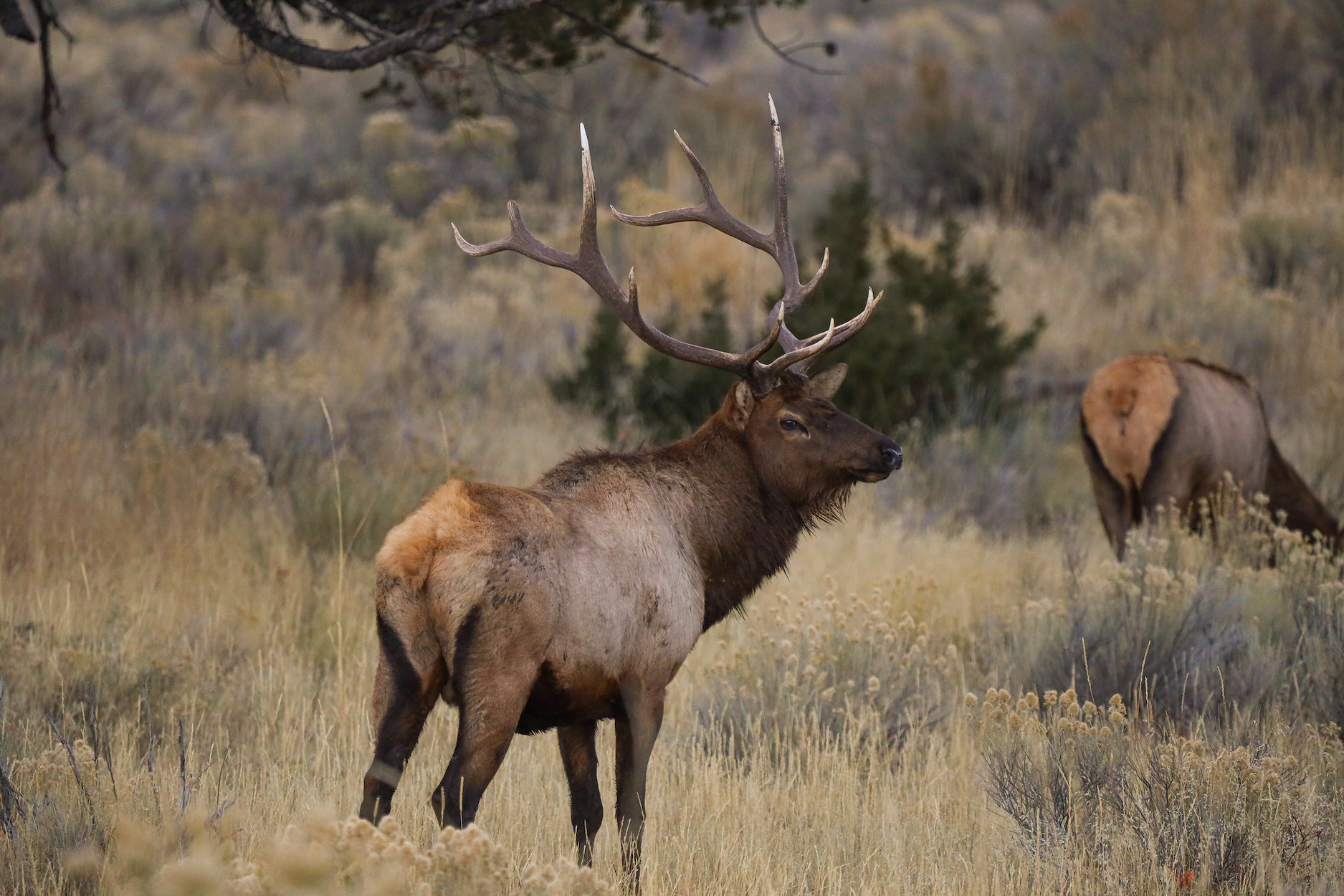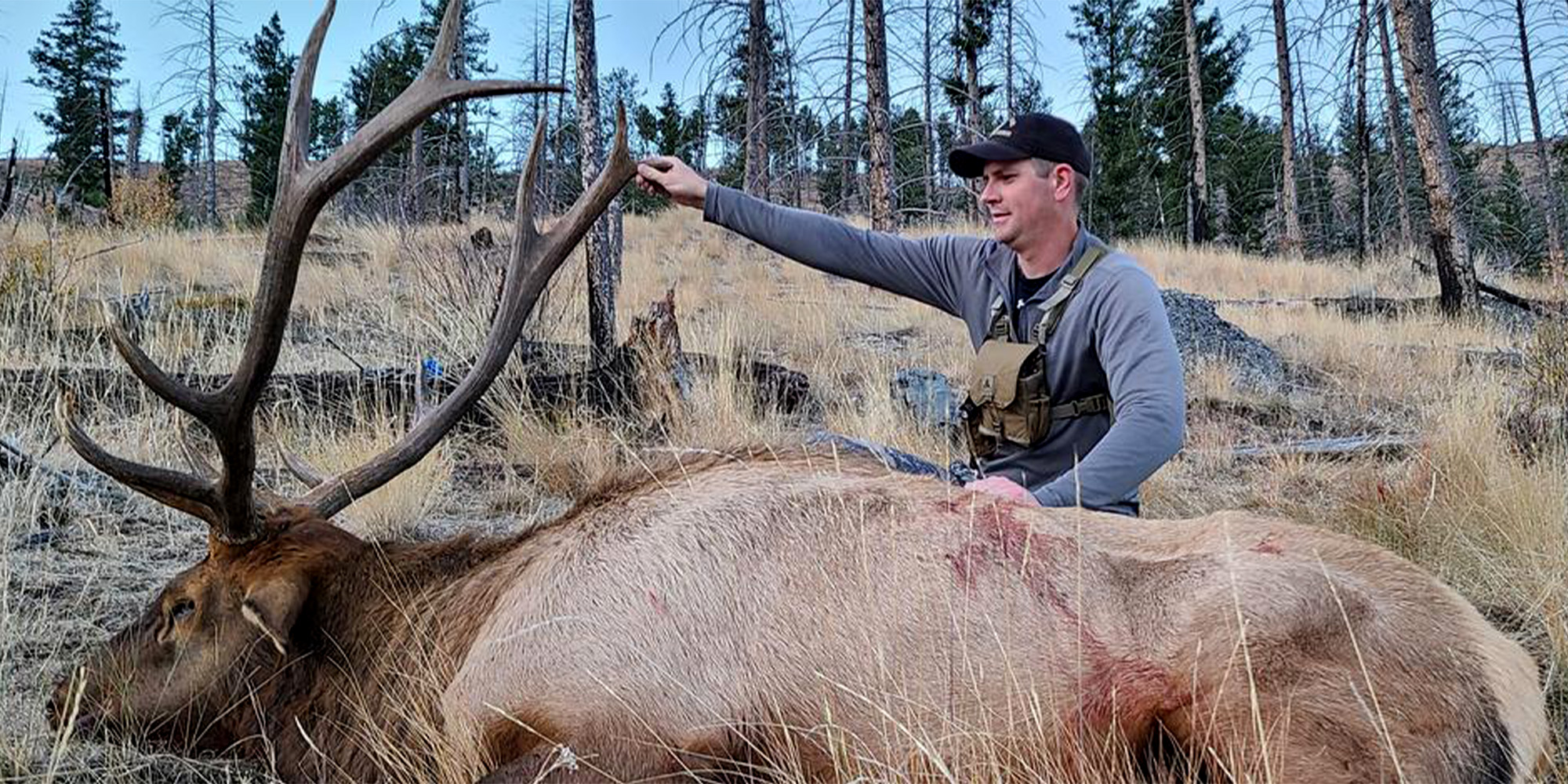Wyoming points to its growing elk herd and increased access on private land, while Idaho officials say last season was ‘a bit of a head scratcher’

Wyoming is home to a growing elk herd of more than 100,000 animals. Photograph by Addy Falgoust / NPS
Wyoming and Idaho might be next-door neighbors, but the two states saw vastly different elk harvest numbers and success rates during the 2023 hunting season. Elk hunters in Wyoming set a new record last fall by harvesting nearly 29,000 elk, with more than 50 percent of those hunters (both resident and nonresidents) finding success, according to the latest report from the Wyoming Game and Fish Department. Meanwhile, Idaho recorded its lowest elk harvest since 2013, with less than 19,000 elk tags filled and only 21 percent of hunters finding success, according to Idaho Fish and Game.
Wildlife managers in the two Western states point to several factors affecting last year’s elk harvest. WGFD attributes the record-breaking harvest in Wyoming to the state’s growing elk herds and the expansion of hunting opportunities on private land. The agency points out that with elk considered overpopulated in much of the state, regulated hunting is critical to managing those herds, and hunters in Wyoming harvested more than 13,000 cows during the 2023 season — the highest numbers recorded there in roughly a decade.
“Hunters play a crucial role in wildlife conservation, and their commitment to help manage elk populations is greatly appreciated,” WGFD Chief Rick Kind said in a press release. “We appreciate the access provided by landowners and the effort expended by hunters in the harvest of antlerless elk.”

WGFD says resident and nonresident elk hunters in Wyoming spent more than 480,000 days in the field over the course of the 2023 hunting season, and the statewide report shows that WGFD sold a combined 77,647 elk tags last year. The total hunter success rate was 53.5 percent, with nonresidents having a 55.6 percent success rate, and residents having a 52.9 percent success rate.
The story was much different in Idaho, where for the first time since 2013, the statewide elk harvest dipped below 20,000 with only 18,568 elk tagged. This represents an 11 percent drop from 2022, even though the number of hunters remained roughly the same. (There were less than one percent fewer licensed hunters this pastt season compared to 2022, according to IDFG.)
Those hunters had a 21 percent success rate overall, and this figure represents the average rate between general hunts and controlled hunts. The agency points out that while the success rates for general hunts were in line with previous years, the rates for controlled hunts dropped substantially from a five-year average of 41 percent to last year’s rate of 23 percent.
Read Next: The Ultimate Guide to Elk Hunting
As for explanations, IDFG said in a press release that the 2023 elk harvest was “a bit of a head-scratcher.” Although the agency expected the brutal 2022-23 winter to have an effect on big-game harvests statewide — mule deer harvests were down 22 percent last year — elk hunters had the opposite problem to contend with this past fall. Warm and dry conditions allowed many of the state’s herds to stay on their summer range much longer than in most years. This delayed migration actually prevented the agency from conducting one of its planned surveys.
“It was kind of a screwy year,” IDFG deer and elk coordinator Toby Boudreau said. “We’re fairly confident the dip in the statewide harvest does not reflect a dip in the elk population, but it may take another year to see that.”
Read the full article here




